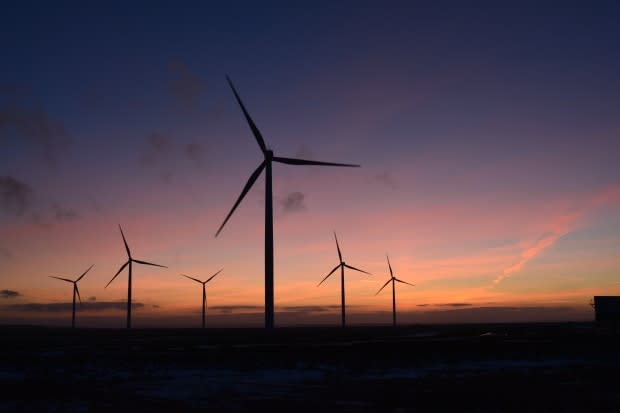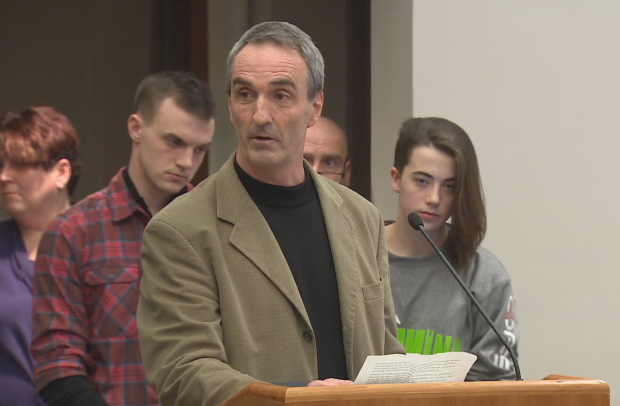Government urged to push green economy transition by U of O think-tank
A disparate group of business executives and civil society organizations penned a letter to Canada's political leaders this week, calling on them to lead efforts to tackle climate change and speed up the transition to a greener economy.
"Building a low carbon, high performance economy is a vital environmental responsibility," the letter says. "It is also a major economic opportunity for all sectors and regions of the country."
The 26 signatories in Wednesday's letter to the prime minister and premiers include seemingly-strange bedfellows: executives from an oil company, a bank, an environmental conservation NGO, a venture capital fund, Indigenous groups and a labour union, among others.
The group was brought together through an initiative from the Smart Prosperity Institute, a think-tank based at the University of Ottawa.
The letter frames transitioning to a green economy not as an either-or issue between lowering emissions and extracting natural resources, but as an economic imperative.
Its recommendations include using government procurement to drive green innovation, tax incentives for businesses that adopt clean tech and enabling a "just transition" for workers affected by rapid economic change.
"We've got to turn up the dial a couple more notches and actually start to make real progress — not just on reducing emissions, but on actually making the things that a low carbon economy needs," said Stewart Elgie, a professor of economics and law at the University of Ottawa and chair of Smart Prosperity.

Elgie said on CBC Radio's All In A Day governments should use their buying clout to promote and set up the use of smart electricity grids, invest in green public transit and build denser cities.
"Government is the number one buyer in our society," Elgie said.
"It needs to lead by example in being an early adopter of these promising clean technologies and driving market demand for them."
Electricity generation and transportation together accounted for 34 per cent of Canada's greenhouse gas emissions in 2017, while oil and gas accounted for 27 per cent of national emissions, according to data from Environment and Climate Change Canada (ECCC).
The long road to Paris targets
Prime Minister Justin Trudeau said during the election that Canada was "on track" to meet its Paris Agreement target of reducing greenhouse gas emissions by 30 per cent from 2005 levels by 2030.
But a January 2019 report from ECCC projected that total emissions reductions would only be 19 per cent below 2005 levels even under the best-case scenario when considering current policies.
In Thursday's speech from the throne, Trudeau pledged to achieve "net-zero" emissions by 2050.

In Ontario, Premier Doug Ford's government has pledged to meet its Paris targets despite making sweeping changes to provincial environmental policies.
They include pulling out of a cap-and-trade program and cancelling 750 green energy projects.
On Wednesday, his climate change plan was slammed in a report by Auditor General Bonnie Lysyk for not being based on "sound evidence" and for overestimating the impact of policy changes.
Full list of signatories
Meredith Adler, Executive Director, Student Energy
Ross Beaty, Chairman, Equinox Gold Corp. and Pan American Silver Corp.
John Coyne, Vice-President, Legal and External Affairs, Unilever Canada Inc.
Michael Crothers, President and Canada Country Chair, Shell Canada
Stewart Elgie, Professor, University of Ottawa; co-Chair, Smart Prosperity
David Hughes, President & CEO, The Natural Step Canada
Greg Kiessling, President, UpCapital Ltd.
John Lounds, President & CEO, The Nature Conservancy of Canada
Jane McDonald, President (interim), International Institute for Sustainable Development
Lorraine Mitchelmore, co-Chair, Smart Prosperity; corporate director, and former oil & gas CEO
Ken Neumann, Canadian National Director, United Steelworkers
Merrell-Ann Phare, Founding Executive Director, Centre for Indigenous Environmental Resources
Miles Richardson, Director, National Consortium for Indigenous Economic Development
Mark Rowlinson, President, Blue-Green Canada
David Runnalls, Board President, Pembina Institute
Jean Simard, President & CEO, Aluminum Association of Canada; co-Founder and Director, SWITCH
Bruce Simpson, Senior Partner, McKinsey and Company
Marcia Smith, Senior Vice-President, Teck Resources Limited
Merran Smith, Executive Director, Clean Energy Canada
Rick Smith, Executive Director, Broadbent Institute
Dominique Souris, Co-founder & Executive Director, Youth Climate Lab
John Stackhouse, Senior Vice-President, Office of the CEO, Royal Bank of Canada
Craig Stewart, Vice-President, Insurance Bureau of Canada
Kirsten Tisdale, Managing Partner, Ernst & Young
Annette Verschuren, Chair & CEO, NRStor; co-Chair, Smart Prosperity
Rob Wesseling, President & CEO, The Co-operators


